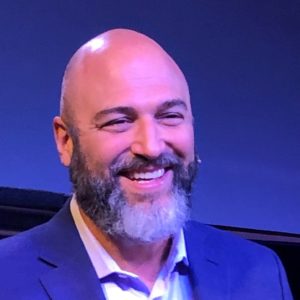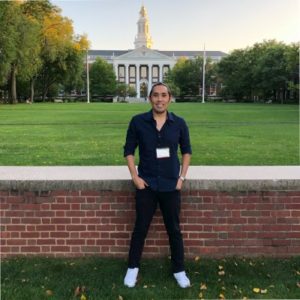Seniors’ use of medical marijuana in ALFs and SNFs
Massachusetts’ implementation of a “medical marijuana law,” and how it applies to assisted living facilities (ALFs) and skilled nursing facilities (SNFs), is, of course, of special interest to providers in that state, but it may hold lessons for senior living communities elsewhere as well.
The Massachusetts Act for the Humanitarian Medical Use of Marijuana passed as a ballot initiative in the state on Nov. 6, 2012, supported by 63 percent of voters. It took effect Jan. 1, 2013, exempting individuals with qualifying medical conditions from penalties imposed under state law for the use of marijuana.
Fifty-two pages of regulations that were developed by the state’s Department of Public Health (DPH) were approved May 8, 2013. The state may license up to 35 dispensaries and as of this writing has selected 20 dispensaries, which still are being inspected before being granted provisional licenses. Those licenses are expected to be issued by the end of this summer or fall, although it may take three to four months to grow the medicine before the dispensaries open their doors.
Qualifying residents
Under the law, state-licensed physicians must determine whether individual ALF and SNF residents meet the test of a “qualifying patient” (the word patient will be used at times in this article as it relates to the language of the law). That test includes having a debilitating medical condition for which the potential benefits of the medical use of marijuana outweigh the health risks. Acceptable conditions as defined by the law include cancer, glaucoma, HIV, AIDS, Crohn's disease, Parkinson's disease and multiple sclerosis, and the law further separates diagnoses on a case-by-case basis. Some people have expressed concern that the list does not specify amyotrophic lateral sclerosis.
| Related article: Does Parkinson's need to meet Mary Jane? |
After July 1, certified doctors must have completed a minimum amount of continuing medical education (CME) on the proper use of marijuana, including side effects, dosage and contraindications, including its interaction with psychotropic drugs; substance abuse recognition; diagnosis; and treatment related to marijuana. The only CME currently available for physicians is through the website www.theanswerpage.com; this course is open to anyone at no charge unless he or she is completing it for credit.
Under the law, a certified doctor must:
- Issue written certification of a “debilitating medical condition” only for a qualifying patient with whom he or she has a relationship;
- Use the state’s prescription monitoring program unless specified otherwise by the public health department;
- Visit the qualifying patient no less than once a year;
- Indicate the time period of the certification, which shall be no less than 15 dates or more than one year; and
- Document in the written certification if the amount of marijuana exceeds 10 ounces for a 60-day supply, the amount of marijuana and his or her rationale for the prescribed amount.
As a point of interest, a Massachusetts resident aged fewer than 18 years who meets all of the aforementioned conditions must have received a diagnosis by two Massachusetts-licensed certifying physicians, one of whom is a board-certified pediatrician or board-certified pediatric specialist or subspecialist. Essentially, it is up to the resident and doctor to determine what medical marijuana use is appropriate. The recommendations are valid for up to one year or for less time if specified by the physician.
Caregiver responsibilities
The regulations are clear that an employee of a hospice care provider, nursing facility, medical facility, visiting nurse service, home healthcare provider or personal care service—or an immediate family member—may serve as a caregiver for more than one person at any time. All “personal qualified caregivers” first must complete an application for registration required by the DPH, and they receive a registration card that must be renewed annually. Each resident may identify up to two caregivers, and they may not receive compensation for this role in addition to their regular wages.
Under the regulations, a personal caregiver may transport a qualified patient to and from a registered marijuana dispensary, obtain and transport marijuana, and cultivate as well as prepare and administer marijuana. In the ALF or SNF setting, however, the personal qualified caregiver is not permitted to cultivate the medication (it appears that a family personal caregiver, under unusual circumstances as set out under the law’s hardship regulation, may cultivate in the home setting, however). A personal caregiver also may not sell, distribute or consume any medical marijuana that is intended for the qualifying patient.
Further information is needed to determine whether a dispensary will deliver to a senior living community. If not, a caregiver is permitted to drive the resident to the dispensary or can pick up the medication himself or herself. It has yet to be determined whether a senior living community will be interested in having an employee approved for this service.
Conflict of state, federal law
Some ALF and SNF administration members have expressed concern or confusion about staff members who may not wish to secure a DPH registration card for any number of reasons, including the inherent fear of prosecution because federal law still considers possession of marijuana a crime. U.S. Attorney Eric Holder, however, has commented that state legalized medical marijuana statutes would be a low priority to prosecute at the federal level.
The enabling state legislation also is explicit that neither physician nor a healthcare professional working under physician supervision will be penalized under Massachusetts law. And the law similarly protects all qualified patients and personal caregivers from state prosecution.
Residents’ rights
A resident has a basic right to treatment as well as the right to refuse treatment as long as he or she is deemed to be competent. Thus, depriving a resident access to medical marijuana is prohibited as a basic constitutional principle.
The issue of how to store and administer the medication may be a resident privacy issue, because the resident is entitled to privacy in his or her own living space. The effect on ALFs and SNFs is significant in terms of who oversees medication storage, administers medication and monitors treatment.
Further, as previously mentioned, the regulations allow residents defined as qualified patients to designate up to two qualified personal caregivers. The role of family members is critical to evaluate, because the regulations allow family members to serve as personal caregivers and to secure DPH registration cards. Additionally, if the medication is prescribed in food or pill form, then it may be “administered” in the privacy of a resident’s room. If the medicine is administered using a vaporizer, however, then the dispensary may provide the equipment, and the administration easily may take place by a staff member or family member who has a DPH registration card.
Regarding taking the medication, vaporizing commonly is recommended instead of smoking, because vaporizers heat the medication to the point just before combustion, thereby releasing active ingredients in a stream. The vapor also is less odorous than smoke. Dispensaries are required to sell vaporizers, with the cost being covered by the resident or the insurer. It’s important to establish protocols and examine existing policies as well as to stress to management and staff members the importance of remembering residents’ rights to treatment.
Based on discussions with ALFs and SNFs, it is difficult to predict the number of residents who will meet the criteria to use medical marijuana and will choose to discuss this treatment option with their doctors. The number of physicians who may affirmatively recommend this treatment is speculative at best. The anticipation is that younger generations (baby boomers) will support this medical treatment in the home setting and in senior living communities.
The issue of proper consent to this treatment by an agent acting under a healthcare proxy or guardian of the person, if in place, for an incompetent person also has been raised. It is not clear whether such a guardian would have the authority to consent to such treatment without court approval.
8 questions
These issues require additional clarification as Massachusetts’ medical marijuana law goes into practical use:
- Storage and dispensing of medical marijuana in assisted living facilities (ALFs) and skilled nursing facilities (SNFs): Because the medication is not FDA-approved and will be provided by dispensaries rather than pharmacies, and because it will be recommended rather than prescribed, how will the state require the medication to be stored?
- If a resident is deemed incompetent in the SNF setting, will the recommendation of medical marijuana be considered “ordinary medical care” or “extraordinary non-invasive medical care?” Will a guardianship have to be expanded by the court to authorize this medical recommendation?
- If a resident has a family member agrees to be the personal caregiver, a hardship has been proven and a Department of Public Health registration card has been obtained, can the family caregiver grow medical marijuana in his or her home and deliver the medication to the resident in the ALF or SNF? How will cultivation be regulated?
- Why is amyotrophic lateral sclerosis not listed as a qualified debilitating diagnosis?
- If a doctor writes a recommendation for medical marijuana, what is the implication for a registered nurse to administer a medication that is not considered a prescription? Does a written certification equal a prescription?
- What happens if a qualified caregiver transports the medication over state lines?
- How will the medication be stored in the senior living community setting?
- How will qualified caregivers be trained to administer the medication?
Resources
These resources may prove helpful for those looking for more information about Massachusetts’ approach to medical marijuana:
- Chapter 369, An Act for the Humanitarian Medical Use of Marijuana, https://malegislature.gov/Laws/SessionLaws/Acts/2012/Chapter369;
- Executive Office of Health and Human Services of Massachusetts, Department of Public Health Initiative, Medical Marijuana, https://www.mass.gov/eohhs/gov/departments/dph/programs/hcq/medical-marijuana/; and
- Massachusetts Patient Advocacy Alliance, https://www.compassionforpatients.com/.
Gosselin, Moschella and Kyriakidis are attorneys at the Winchester, Mass., law firm of Gosselin, Moschella & Kyriakidis PC, where Woodbury is community education liaison.
Related Articles
Topics: Articles , Executive Leadership , Regulatory Compliance










